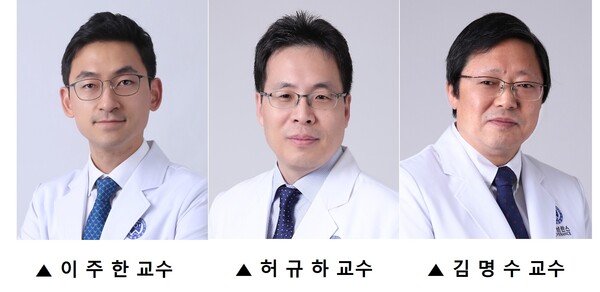Severance Hospital said its kidney transplantation team at the Organ Transplantation Center performed the 400th ABO incompatible kidney transplant on a patient suffering from hypertension and diabetes on Feb. 8.

The hospital performed the first ABO incompatible kidney transplant in June 2010.
Since the hospital surpassed 100 such cases in 2014, it took only nine years to perform over 400 ABO incompatible kidney transplants.
Cho Eun-hee, a 62-year-old woman who was suffering from chronic kidney disease, received Severance’s 400th different blood type group kidney transplant.
In January 2021, her kidney function rapidly declined due to Covid-19 infection, requiring a kidney transplant or dialysis. However, Cho, who had blood type A, could not find a donor with the matching blood type.
However, her attending doctor Lee Ju-han at the Transplantation Surgery Department and professor Huh Kyu-ha, head of the kidney transplantation team, introduced an option of an ABIO-incompatible kidney transplant.
Then, Cho was able to get a kidney donation from her husband, 61, although her husband had blood type B. The surgery went successful, the hospital said.
Different blood type group kidney transplant, where the recipient’s and the donor’s blood types do not match, is considered a high-risk surgery because of the high risk of rejection of the transplanted organ. This is because ABO antibodies attack the transplanted organ.
To prevent this, surgeons remove ABO antibodies through plasma exchange and immunosuppressant administration.
To reduce rejection and complications that may appear before and after the surgery, it is crucial for multiple clinical departments such as transplant surgery, nephrology, and laboratory medicine to closely cooperate.
Severance’s kidney transplantation team performs about 50 ABO incompatible kidney transplants annually.
Such kidney transplants are successful even in high-risk patients such as those aged more than 60 or those with high transplant resistance.
Recently, the hospital introduced the ABO incompatible kidney transplant program in robot-assisted kidney transplants to improve surgical results.
Kim Myoung-soo, director of the Organ Transplantation Center at Severance Hospital, said he was pleased that the hospital’s ABO incompatible kidney transplants broadened the scope of donors.
“We will also continue to strive for treatment customized for each patient's different immune risk to minimize complications.”
Related articles
- Severance establishes Asian reference value to aid antiplatelet therapy
- YUHS to begin Korea’s 1st heavy ion therapy for cancer patients soon
- Severance leads domestic arrhythmia treatment with patient cases surpassing 25,000
- Severance, Harvard improve accuracy of biliary cancer liquid biopsy by 1.3 times
- Severance Hospital expands AI voice bot service for patients

